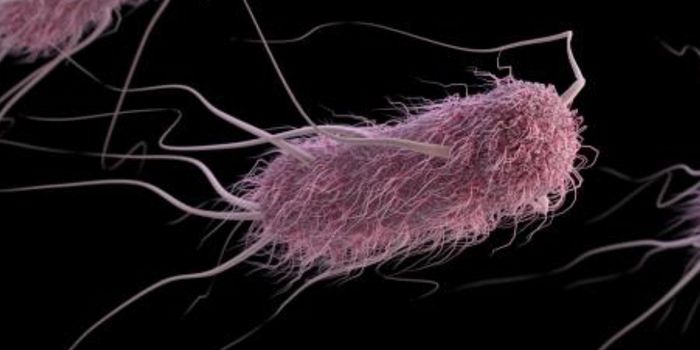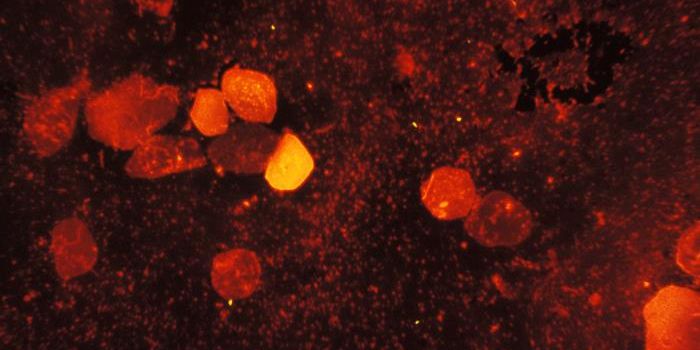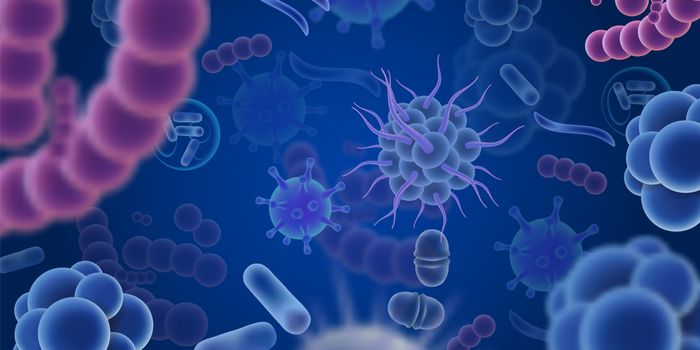An Intriguing Triad - Gut Fungus, Immunity, and Behavior
Microbes in the gut have been shown to have a powerful influence on many aspects of our biology and well being. Scientists have begun to dissect the complex connections between different kinds of microorganisms in the human gastrointestinal tract and our health, and in some cases, there have been specific links between with certain bacteria and diseases. But there's more to the gut microbiome than just bacteria. Other microbes including archaea, viruses, and fungi reside there too. Some researchers have noted that it's important not to ignore those other microbes when studying the microbiome.
A recent study reported in Cell has emphasized that notion. This research has shown that a group of intestinal fungi (sometimes called the gut mycobiome) can help shield the intestines from injury. These fungi also seem to impact social behaviors. The work is part of a growing body of research focusing on the gut-immunity-brain-axis, an extension of the gut-brain axis that's been under investigation for several years.
"We have made a direct link between a major immune pathway induced by fungi in the lining of the intestine and signals in the nervous system that impact animal behavior," said senior study author Dr. Iliyan Iliev, an associate professor of immunology in medicine in the Division of Gastroenterology and Hepatology at Weill Cornell Medicine.
Related: A Gut Microbe Metabolite Makes Mice More Anxious
The intestinal barrier serves several important functions; it helps us absorb critical nutrients, and also shields the body from the community of microbes that lives in the gut. Gut microbes and the molecules they generate can have many effects on the body, and they have to be contained and controlled in the gut, and kept separate from other areas. Disease can occur when the intestinal lining is compromised.
The researchers used a mouse model to determine where intestinal fungi are located, and determined that a unique collection of fungi can typically be found in specific places in the gut lining, or epithelium. The study authors suggested that these species of fungi, called mucosa-associated fungi (MAF), grow there specifically, and interact with nearby epithelial cells. Mice that carried these fungi tended to fare better when intestinal injury or infection occurred, compared to mice not carrying the fungi.The mice carrying these fungi were also more social compared to mice not carrying them.
"There was fortification of those barrier functions when we added that specific fungal community to mice," said Iliev.
T cells that release two cytokines called IL-22 and IL-17 seem to be involved in both observations. IL-22 that is derived from fungi can act on the epithelium and boost its barrier function. IL-17 from fungi can move into circulation, eventually reaching receptors on neurons. If mice don't carry the IL-17 receptor in their neurons, they no longer demonstrate increased sociability.
"There is this harmony; a kind of communication between or across different types of organisms," Iliev noted.
The researchers are planning to continue this work, and want to learn more about whether gut microbes can impact different parts of the brain or immune system.
Sources: Weill Cornell Medical College, Cell


![[Guide] 7 Strategies to Boost Laboratory Collaboration](https://d3bkbkx82g74b8.cloudfront.net/eyJidWNrZXQiOiJsYWJyb290cy1pbWFnZXMiLCJrZXkiOiJjb250ZW50X2FydGljbGVfcHJvZmlsZV9pbWFnZV83YzBjZWIwM2Y5YzI4MmFlYzBhZDZhMTcyNTQ1ZGU3YmE4Y2MzMDYyXzUxNDkuanBnIiwiZWRpdHMiOnsidG9Gb3JtYXQiOiJqcGciLCJyZXNpemUiOnsid2lkdGgiOjcwMCwiaGVpZ2h0IjozNTAsImZpdCI6ImNvdmVyIiwicG9zaXRpb24iOiJjZW50ZXIiLCJiYWNrZ3JvdW5kIjoiI2ZmZiJ9LCJmbGF0dGVuIjp7ImJhY2tncm91bmQiOiIjZmZmIn19fQ==)






